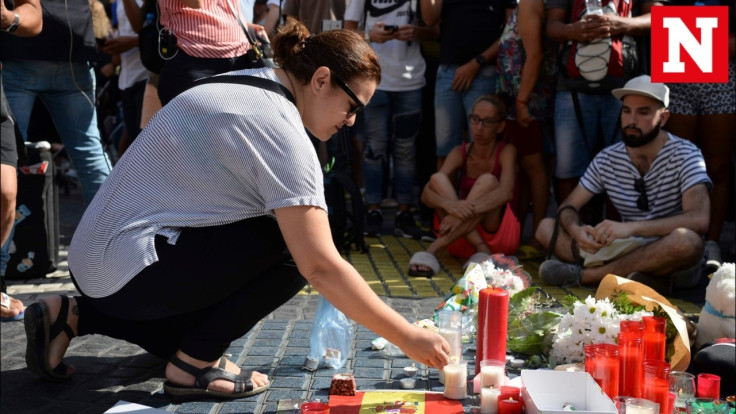Barcelona and the Spanish inquisition: The lost paradises that fuel jihadist terrorism
Isis blamed Barcelona and Cambrils attacks on Spanish inquisition, but this is just propaganda.
Thirteen years after coordinated Madrid train bombings killed 193 people and injured more than 2,000 terrorism has struck again in one of the safest countries in the Western world.
Al-Qaeda was behind the then train bombings 11 March 2004 that established a deadly record in Europe (unbeaten even now). This summer, it was Isis that put its signature on massacres in Barcelona and Cambrils.
In spite of the wave of terrorism that has rocked Europe since 2014, Spain has been a land of comparative safety, with an a well-honed counterterrorism strategy.
Not in vain, decades spent fighting Basque terrorist group ETA (more than 1,000 innocent people were killed) and the 11 March experience itself, have provided Spanish security forces and authorities with legal weapons powerful enough to tackle the menace of jihadism.
For example, since 2004, around 750 suspects with links to jihadism have been detained and many attacks foiled. Science fiction for other countries.
Moreover, although there are around 2 million Muslims in Spain, except some rare cases, there are no remarkable clashes within society. Quite different from the reality facing other European countries with a stronger and more recent colonial heritage and integration problems with Muslims, such as France, Belgium or the UK.
However, in this era of extreme radicalisation and low cost terrorism, even Spain has been beaten by the assassins. In spite of the good fight against the foggy evil, authorities continuously remind that it is extremely difficult to guarantee 100% safety.
In fact, Spain had been preparing for terrorism, but the problem was that nobody knew where it would it strike.
A recent US State Department report about terrorism, stated that Madrid, Barcelona, Ceuta and Melilla ( along the border with Morocco) were the main focus of concern ; so it was Barcelona, one of the most popular tourist cities in the world.
Days after the attack, the Isis propaganda machine worked as efficiently as usual and its media wing Al-Hayat launched its very first video in Spanish.
This video attracted much attention but threats to Spain have been common in jihadist propaganda before.
Why? As a European, democratic and NATO member, terrorists do not like Spain, of course. In addition, Spain cooperates with the International Coalition against Isis by providing logistics and training local forces (beyond the Middle East, Spain is the most active European country in the Sahel, north Africa, where it helps train armies against terrorist threats).

But Spain also represents another motivation for the jihadist: It was (together with Portugal) Al-Andalus, a prosperous Muslim-ruled kingdom that flourisdhed in large parts of the Iberian peninsula from 711 until 1492. Salafism and jihadists understand Al-Andalus as an almost mythical land of good and Muslim happiness which must be recovered.
In their exhaustive propaganda, they speak of"the lost Al-Andalus" or "the bleeding wound". According to them, Al Andalus was lost because of the disunion of Muslim and evilness of Spanish Christians. (Of course, historical accuracy is not relevant in this case). Although Al-Andalus was neither so prosperous nor wonderful, not only ISIS, but also Al-Qaeda and Bin Laden himself used to refer to it.
"We will not loose Palestine as we did [with] Al-Andalus", Bin Laden said after 9/11.
For jihadists and Salafists, every land which has been at some time under Islamic rule, is in fact part of the Caliphate and must be recovered because it is truly Muslim. According to this, from Portugal to India (Jorashan wilayat), from the Balkans to sub-Saharan Africa, the Caliphate must expand itself.
But this is the propaganda game, the poison which runs wild accross the Internet, social media, Salafist centres and radical imams' speeches. The fear poured on eyes, ears and hearts.
However, propaganda can be defeated with responsible actions and education to supplement our daily media consumption – even if that is full of horror, threats or lost and fake paradises.

Andrés Ortiz Moyano is a Spanish journalist and writer, specialised in jihadism and propaganda. He is the author of '#YIHAD. How ISIS conquered Internet and mass media'. Follow him on Twitter
© Copyright IBTimes 2025. All rights reserved.





















